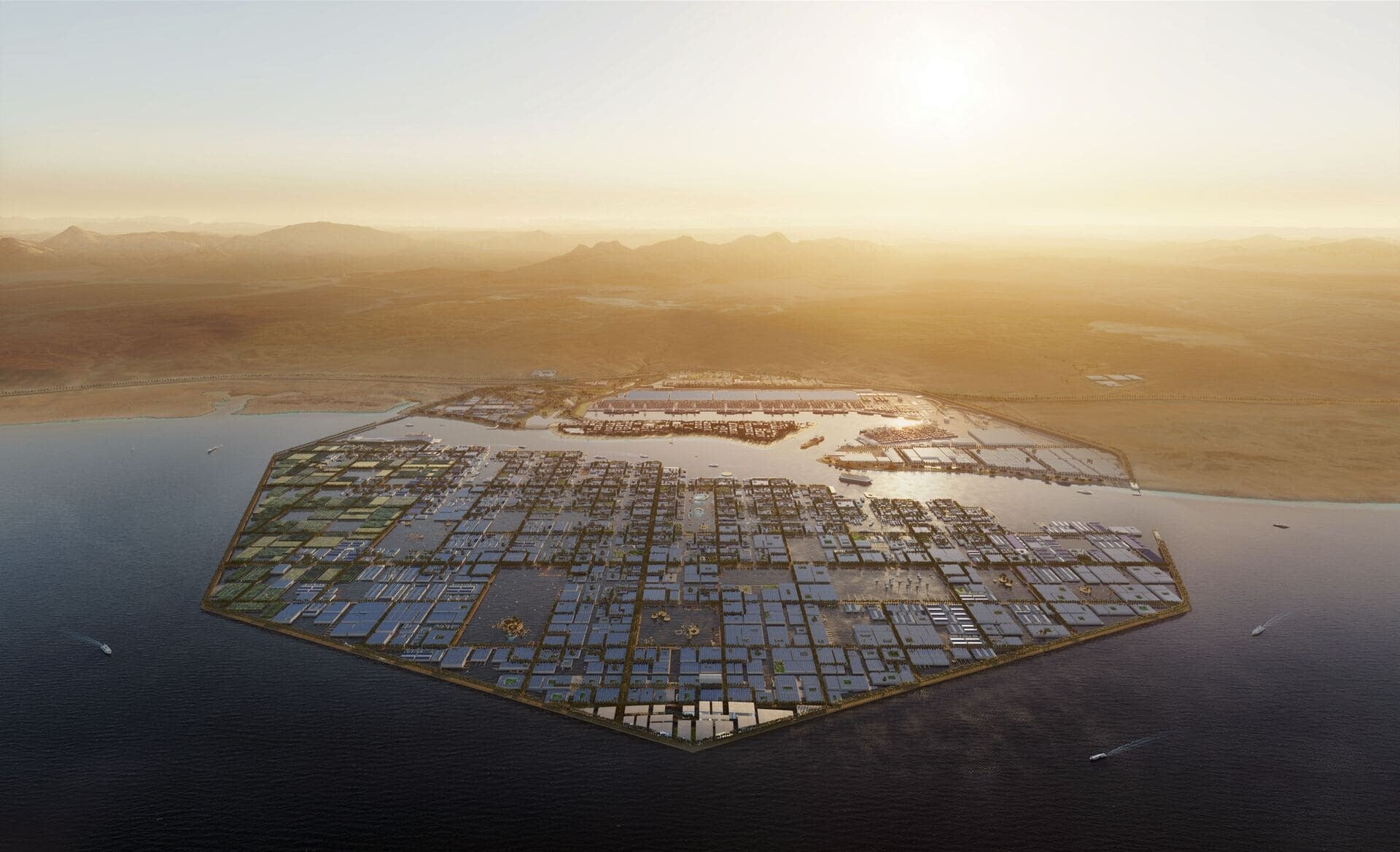
Saudi Arabia’s Neom Green Hydrogen Company (NGHC) has completed a financial close for its hydrogen plant at a total investment value of $8.4bn.
Currently being built at Oxagon in the regional development of Neom, Saudi Arabia, the project will be the world’s largest commercial-scale green hydrogen production facility.
The project plans to use 4GW of solar and wind energy to produce up to 600 tonnes of green hydrogen in the form of liquid ammonia per day by 2026.
The site has received a $6.1bn investment from 23 local, regional and international banks and investment companies.
NGHC has also secured a 30-year green offtake agreement for all green ammonia produced at the facility.
NGHC is a joint company between ACWA Power, Air Products and Neom. Air Products will act as the nominated contractor and system integrator.
In a statement, NGHC chairman Nadhmi Al-Nasr said: “This project is the first-of-its-kind internationally, leading the world in the hydrogen revolution.
“NGHC’s project will pave the way for the large-scale adoption of green hydrogen while driving Saudi Vision 2030’s sustainable development goals.”
Air Products has already begun awarding contracts to technology and construction partners.
Neom controversy
The green hydrogen project will form a part of the controversial Neom development currently under construction in Saudi Arabia. The architectural project, which will include The Line megacity, is due to be entirely powered by renewables.
Nevertheless, the initiative by Saudi Crown Prince Mohammed bin Salman has faced criticism for human rights abuse and questions over its sustainability credentials. According to human rights NGO Amnesty International, the forced evictions that have taken place in order to build Neom “violate international human rights standards and discriminate against foreign nationals”. The area being developed is originally home to the Howeitat tribe.
In April 2020, Abdul Rahim Al Huwaiti was executed by special forces after criticising attempts by the authorities to evict residents of the Al Khuraiba village for the Neom development, reported NGO MENA Rights Group at the time.
Philip Oldfield, head of the built environment school at the University of New South Wales, told magazine Dezeen that any environmental benefits associated with Neom’s renewable power “would be overwhelmed” by the embodied carbon costs of construction.
Neom stated on its website that it is “working with its surrounding environment to create a sustainable cycle, providing the resources to power a thriving, resilient economy”. Much of the Neom project, including its renewable energy developments, is due to be completed by 2030.
The project has been largely financed by the Saudi Arabian Public Investment Fund, which invests funding on behalf of the government.



